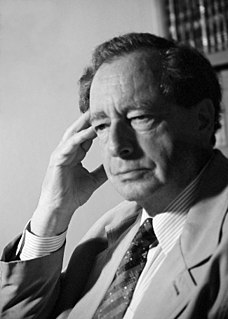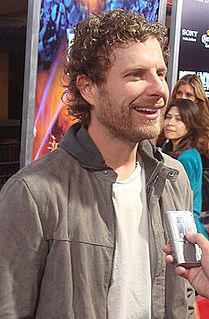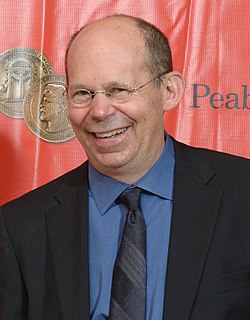A Quote by John Dewey
That education is not an affair of "telling" and being told, but an active and constructive process, is a principle almost as generally violated in practice as conceded in theory. Is not this deplorable situation due to the fact that the doctrine is itself merely told? It is preached; it is lectured; it is written about.
Related Quotes
We are told dogmatically that Evolution is an established fact; but we are never told who has established it, and by what means. We are told, often enough, that the doctrine is founded upon evidence, and that indeed this evidence is henceforward above all verification, as well as being immune from any subsequent contradiction by experience; but we are left entirely in the dark on the crucial question wherein, precisely, this evidence consists.
I was in the hospital and I was paralyzed and I went through all of these things. I've had all of these crazy experiences and jobs in my life, but I never really write about them because I've already told them as stories to friends. For me, the process of writing is the process of invention. But the hospital story felt told already. There was nothing to discover in the telling of it. The discovery had to be in the form. It wasn't really the unfamiliarity of the form, it was more about a way incorporate invention and how to realize it imaginatively.
To think that practice and realization are not one is a heretical view. In the Buddha Dharma, practice and realization are identical. Because one's present practice is practice in realization, one's initial negotiating of the Way in itself is the whole of original realization. Thus, even while directed to practice, one is told not to anticipate a realization apart from practice, because practice points directly to original realization.
Nabokov can be almost too delicate at times, but in 'Lolita,' he puts his aristocratic sensitivity to use in such a dark tale that it creates this great tension between the story being told and the style that it's written in. And it's just amazing that one of the best novels in English was written by a Russian.
There's something exhilarating about telling stories that haven't been shared before and haven't been told publicly before. The last thing I want to be doing is telling stories other people have already told. That's not to say that there isn't important work out there about people in positions of power, but I know my strength. Even when I was at the Wall Street Journal 10 years ago, this is what I wrote about.
Believe nothing, O monks, just because you have been told it, or it is commonly believed, or because it is traditional or because you yourselves have imagined it. Do not believe what your teacher tells you merely out of respect for the teacher. But whatsoever, after due examination and analysis, you find to be conducive to the good, the benefit, the welfare of all beings - that doctrine believe and cling to and take as your guide.








































